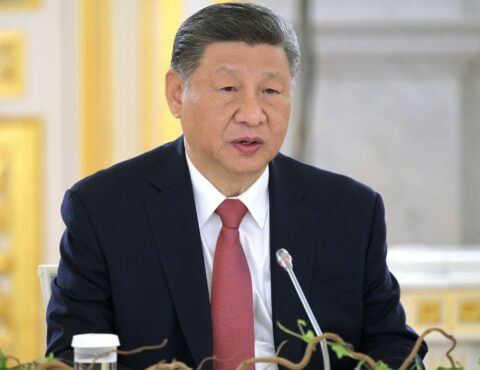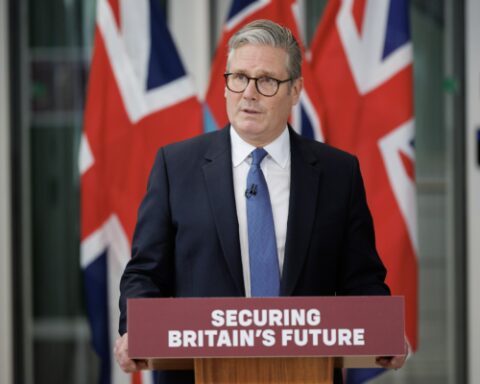In a move raising red flags across both Ukraine and the West, the Ukrainian Parliament on Tuesday reportedly approved sweeping legislation that would dismantle key powers of the country’s main anticorruption agency, signaling what critics describe as President Volodymyr Zelensky’s steady drift toward centralized executive control.
The legislation, which must still be signed by Zelensky, places the once-independent National Anticorruption Bureau of Ukraine (NABU) under the control of the president-appointed prosecutor general.
The bureau, created in 2015 at the insistence of Western allies, was long seen as a pillar of Ukraine’s post-revolution transparency reforms. Now, critics say, it has become a target.
“What’s happening is the demolition of the anticorruption infrastructure in Ukraine,” said Daria Kaleniuk, co-founder of the Anticorruption Action Center, a group instrumental in establishing NABU following the 2014 ouster of a pro-Russian regime. Kaleniuk added that Washington’s recent silence on the matter has emboldened Kyiv to neutralize the agency.
Western diplomats, particularly from the G7, are taking notice. Following meetings in Kyiv on Tuesday, G7 ambassadors expressed “serious concerns” about the legislation, which they said they would raise with Ukrainian government leaders. A spokesman for the European Commission echoed the sentiment, warning that Ukraine’s EU aspirations hinge on its ability to “combat corruption and ensure institutional resilience.”
Zelensky, who came to power in 2019 pledging to root out corruption, now faces growing criticism for what many see as autocratic overreach. In recent months, his administration has frozen the assets of former President Petro Poroshenko, a political rival, and banned him from leaving the country.
More recently, activist Vitaliy Shabunin was charged with fraud and avoiding military service—a move widely viewed as politically motivated.
“This pressure campaign is a direct response to the effectiveness of our investigations,” said NABU Director Semen Kryvonos, referencing the bureau’s recent targeting of high-ranking officials, including Deputy Prime Minister Oleksiy Chernyshov.
In June, NABU requested Chernyshov’s suspension as part of an active corruption probe. Not long after, investigators raided the homes of 15 NABU employees, leading to the arrest of a top detective for allegedly doing business in Russia.
While most were accused of traffic violations, Kryvonos suggested the campaign was orchestrated by those “actively being investigated.”
NABU’s political independence has long been viewed as critical to Ukraine’s judicial credibility, especially in the eyes of Western governments that have funneled billions of dollars in military and economic aid.
The agency was established with support from the FBI and quickly made headlines for taking on entrenched corruption at the highest levels.
That legacy now appears at risk. Even Kyiv’s mayor, Vitali Klitschko, a vocal critic of Zelensky, decried the legislation, saying it “does not bring us closer to democracy, the rule of law, and legality—the very values our soldiers are dying for.”
The law passed Tuesday despite procedural objections and attempts by opposition lawmakers to block the vote. Widespread condemnation followed on social media, with citizens urging Zelensky to veto the measure.
Still, many fear the president’s growing control over Ukraine’s institutions may be difficult to reverse—especially in wartime.
As Ukraine’s government fights for survival on the battlefield, its leaders may be sacrificing the transparency and independence that once earned the world’s trust.








